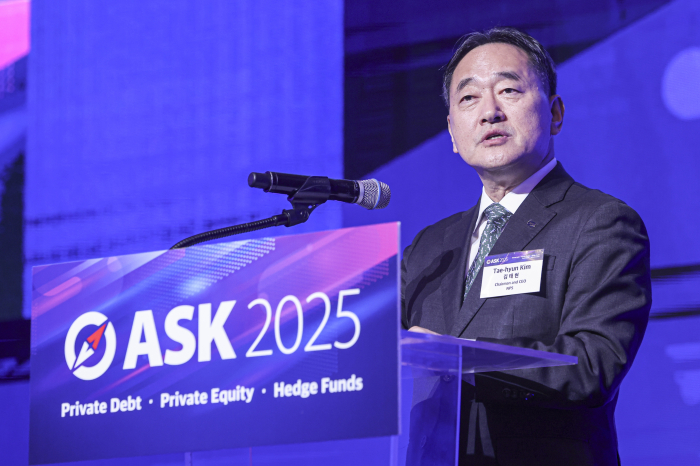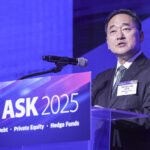
The National Pension Service (NPS) will commit a total of 400 billion won ($280 million) to six South Korean venture capital firms this year, doubling its allocation to the sector from a year earlier, its Chairman Kim Tae-hyun said on Wednesday.
“This year, we will significantly increase both the size and number of asset managers selected for venture investment compared to last year,” he said in a keynote speech at the ASK 2025 global conference hosted by The Korea Economic Daily.
“By the end of the year, six firms will be chosen to manage a total of 400 billion won.”
In 2024, the South Korean pension scheme allocated a total of 200 billion won to four homegrown VC firms: IMM Investment, DSC Investment, Aju IB Investment and LB Investment.
The move follows the government’s announcement in September that it will establish a 150-trillion-won National Growth Fund, with contributions from pension funds, financial services firms and individuals, aimed at accelerating investments in technology startups.
PRIVATE CREDIT
The world’s No. 3 pension fund is expanding its exposure to private debt.
“In the rapidly changing private credit market, we are diversifying our portfolio with a focus on senior loans, while increasing exposure to the secondary market, which is well-suited for securing liquidity and rebalancing portfolio,” the chairman said.
He added that in 2025 the world’s No. 3 pension fund is likely to continue delivering solid returns following a record 15% gain in 2024 and a 13.59% return in 2023.
As of the end of September, NPS posted returns exceeding 11% for this year.

TRICKY INVESTMENT ENVIRONMENT
Kim said that despite abundant liquidity driven by interest rate cuts, both safe-haven and risky assets are rising simultaneously amid escalating geopolitical tensions and growing concerns over fiscal soundness in some European countries.
“While strong stock price gains can lead to good performance, the current environment poses significant challenges for strategic asset allocation and tactical investment decisions.”
PRIVATE EQUITY
For the private equity sement, it continues to pursue co-investment opportunities, while tightening its oversight of external management firms.
In July, it overhauled the selection criteria for external private equity managers.
Under the revised framework, it now evaluates not only whether their investment decisions align with social standards and norms.
It also assesses private equity firms’ efforts to enhance both qualitative and quantitative corporate value and financial strength of portfolio companies, as well as to promote their sustainable growth.
Private equity is NPS’ largest and best-performing asset class within its alternative investment portfolio. It has generated an average return of 16.53% over the past five years, outperforming infrastructure at 11.44% and real estate at 6.58%.
As of the end of 2024, it accounted for 43.8% of its alternative assets, followed by real estate at 28.2% and infrastructure at 25.6%.
By Yeonhee Kim
yhkim@hankyung.com
Jennnifer Nicholson-Breen edited this article.















